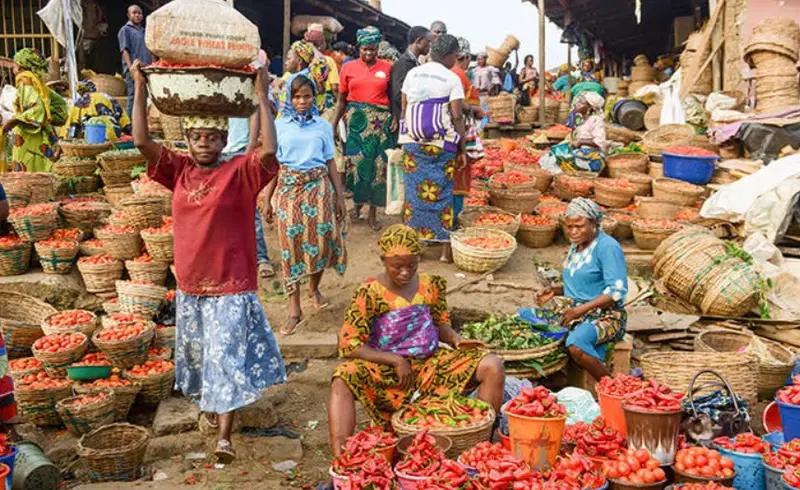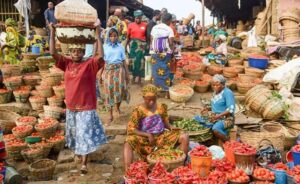Soaring food prices have dampened Eid-el-Kabir celebrations.

Soaring food prices have dampened Eid-el-Kabir celebrations.

In Ibadan, Oyo State, traders and Muslim faithful expressed frustration. Alhaji Ganiyu, a ram seller at Bodija Market, said sales have dropped significantly, with many unable to afford even one ram. A mother named Khadija shared concerns about meeting her children’s expectations despite months of saving.
In Lagos, prices of perishable and non-perishable food items have surged sharply. At Oyingbo Market, Scotch Bonnet peppers now sell between N2,000 and N8,000 per quantity, up from N200–N500 last month. A bag of pepper (Rodo) rose to N200,000 from N110,000, with similar hikes in bell pepper and tomatoes. Traders attribute the price spikes to seasonal demand and traders returning north.
Markets including Mile 12, Mushin, Lekki, Ajah, and Epe have seen food prices jump by nearly 300% compared to last year. Onions remain relatively cheaper but still cost more than in 2024. A 100kg basket of onions sells for N100,000, up from N70,000 last year.
In Ogun State, similar price increases were observed. At Olomore Market, a basket of tomatoes rose from N45,000 to N150,000; pepper from N60,000 to N170,000 per basket. Rams now cost between N400,000 and N900,000, with transportation costs and insecurity cited as causes.
In Kaduna, food prices remain stable, with rice selling between N55,000 and N70,000 per 50kg bag. Transport fares, however, have increased significantly, with trips from Kaduna to Abuja rising from N6,000–N7,000 to N9,000–N10,000.
Kano residents report rising vegetable and livestock prices, with tomatoes doubling to N40,000 per basket and pepper nearly doubling to N150,000. Transport fares on major routes have also increased.
Ram traders in Lagos noted a rising preference for cows over rams, as cows offer more economical options for group sharing. Prices for cows start around N800,000, while rams range from N130,000 to N700,000 depending on size and breed. Consumers are adapting to economic realities by sharing cows for the sacrifice.
Cooking oil demand has increased ahead of Sallah, with groundnut oil prices slightly reduced from December highs but still considered expensive. Vendors now sell oil in smaller portions to accommodate consumers’ budgets.
Residents in Abeokuta lament the high costs of rams, with many opting for alternatives such as goats or pooling resources to buy cows. Some express disappointment with the rising prices and urge government intervention.
Farmers and traders in Lagos report low patronage this Sallah due to inflation reducing consumers’ purchasing power. Despite some produce price drops, many cannot afford key ingredients like pepper. Calls for local pepper cultivation have increased to mitigate cost issues.
Ram sellers in Osogbo, Osun State, face low sales amid rising prices, blaming transportation costs and fuel price hikes. Rams now sell between N120,000 and N500,000, up from N200,000 last year. Cattle prices have also nearly doubled.
Overall, soaring food and transport costs have forced many Nigerians to reconsider traditional Sallah purchases and celebrations this year amid economic hardships.






